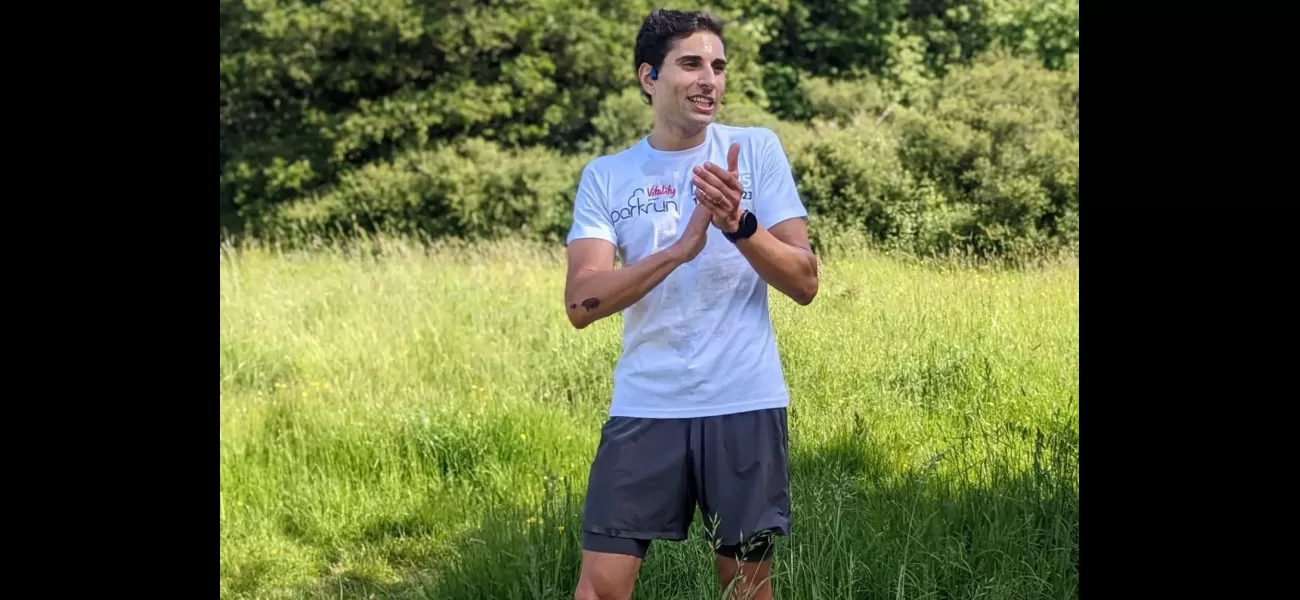Exercise feels simpler when you stop seeing it as 'working out.'
Can exercise really make you feel better? I believe it can.
May 19th 2024.

According to Dr Hussain, engaging in physical activity can have a significant impact on our mood. As someone who is both a GP and a personal trainer, I have heard various descriptions of how people feel after exercising. Some may use words like 'exhausted', 'shattered', or 'sweaty', but I believe we should change our perspective and think of it as movement instead of exercise. This shift in mindset removes the negative connotations and makes it feel less like a chore and more like a liberating experience.
In my experience, when I talk to my clients and patients about movement, they often mention the rush of happy hormones they experience afterwards. They describe feelings of contentment, relaxation, and a stronger connection to their environment or those around them. Some may doubt the idea that physical activity can improve our mood, but I know from my own personal experience and research that it can indeed have a positive impact.
In fact, there is a growing body of evidence that suggests physical activity can be just as effective, if not more effective, than antidepressants. Our bodies produce various chemicals throughout the day that influence our emotional state. These include melatonin, which makes us feel sleepy, ghrelin, which signals hunger, and endocannabinoids, which block pain and promote feelings of wellbeing.
As we celebrate Mental Health Awareness Week, I am particularly interested in the role of endocannabinoids in enhancing mood, promoting relaxation, and even alleviating pain. Physical activity is by far the most effective way to stimulate the release of these chemicals. Some may be more familiar with the term 'endorphins', but research suggests that endorphins cannot cross the blood-brain barrier, meaning they cannot reach our brains. So if someone mistakenly attributes their post-workout high to endorphins, feel free to correct them!
The effects of endocannabinoids are so powerful that even a single bout of movement can trigger an uplift in mood, commonly referred to as an 'exercise high'. This year, Metro has partnered with the iconic charity parkrun to bring you a series of content that aims to elevate, support mental health, and promote societal cohesion. Whether you run, walk, jog, or strut, join us as we share stories of those who have found their community, their calling, or have had their lives changed by simply lacing up their trainers.
Personally, I can attest to the fact that I feel 10 times happier after completing a parkrun event each Saturday morning. It's not just about the physical activity, but also about being able to spend an hour outdoors. As a GP, I spend most of my time indoors, so the opportunity to reconnect with nature brings an additional sense of calmness and peace.
It's been incredibly fulfilling to see many of my own patients become regular attendees at parkrun events. I have witnessed firsthand how it has improved their physical and mental health, as well as the friendships they have formed through this community. For me, parkrun is a weekly outlet to release any built-up anxieties. It also provides a sense of safety, contentment, and pride as I look forward to it as a social opportunity to connect with friends.
Before each event, I feel a sense of excitement as it's always a different experience. The memories made during the event and the self-esteem boost from completing another event or receiving a volunteer credit make me feel less stressed and more connected to those around me. It's a real sense of achievement, and for the rest of the day, I feel like a champ.
I'm not the only one who feels this way either. In a health and wellbeing survey conducted by parkrun, 79% of people reported a significant improvement in their happiness, while 69% reported improvements in their mental health since participating. Generally speaking, any form of physical activity can have a positive impact on symptoms of depression, anxiety, and distress. Inactive adults who engage in the recommended amount of physical activity have a 25% lower risk of depression, while even completing half the recommended amount can lead to an 18% reduction in depression.
So, what's your favorite form of exercise? I encourage everyone, regardless of their mental health, to consider participating in this year's Mental Health Awareness Week theme - movement. Feeling stressed? Take a stroll in the sunshine. Considering joining a gym? Think of ways to make it easier, such as going with a friend or starting at home with online strength videos. Or, if you're looking for a supportive community, you'll always be welcome at parkrun.
Yes, you may feel a bit achy or sore the next morning, but that's just a sign of your body getting stronger. Remember, if you experience significant or prolonged pain, it's always best to consult a healthcare professional. But overall, the benefits of being physically active far outweigh any discomfort. Physical activity is a medicine in itself, and it's never too late to start. Do you have a story to share? We'd love to hear it. Share your views in the comments below.
In my experience, when I talk to my clients and patients about movement, they often mention the rush of happy hormones they experience afterwards. They describe feelings of contentment, relaxation, and a stronger connection to their environment or those around them. Some may doubt the idea that physical activity can improve our mood, but I know from my own personal experience and research that it can indeed have a positive impact.
In fact, there is a growing body of evidence that suggests physical activity can be just as effective, if not more effective, than antidepressants. Our bodies produce various chemicals throughout the day that influence our emotional state. These include melatonin, which makes us feel sleepy, ghrelin, which signals hunger, and endocannabinoids, which block pain and promote feelings of wellbeing.
As we celebrate Mental Health Awareness Week, I am particularly interested in the role of endocannabinoids in enhancing mood, promoting relaxation, and even alleviating pain. Physical activity is by far the most effective way to stimulate the release of these chemicals. Some may be more familiar with the term 'endorphins', but research suggests that endorphins cannot cross the blood-brain barrier, meaning they cannot reach our brains. So if someone mistakenly attributes their post-workout high to endorphins, feel free to correct them!
The effects of endocannabinoids are so powerful that even a single bout of movement can trigger an uplift in mood, commonly referred to as an 'exercise high'. This year, Metro has partnered with the iconic charity parkrun to bring you a series of content that aims to elevate, support mental health, and promote societal cohesion. Whether you run, walk, jog, or strut, join us as we share stories of those who have found their community, their calling, or have had their lives changed by simply lacing up their trainers.
Personally, I can attest to the fact that I feel 10 times happier after completing a parkrun event each Saturday morning. It's not just about the physical activity, but also about being able to spend an hour outdoors. As a GP, I spend most of my time indoors, so the opportunity to reconnect with nature brings an additional sense of calmness and peace.
It's been incredibly fulfilling to see many of my own patients become regular attendees at parkrun events. I have witnessed firsthand how it has improved their physical and mental health, as well as the friendships they have formed through this community. For me, parkrun is a weekly outlet to release any built-up anxieties. It also provides a sense of safety, contentment, and pride as I look forward to it as a social opportunity to connect with friends.
Before each event, I feel a sense of excitement as it's always a different experience. The memories made during the event and the self-esteem boost from completing another event or receiving a volunteer credit make me feel less stressed and more connected to those around me. It's a real sense of achievement, and for the rest of the day, I feel like a champ.
I'm not the only one who feels this way either. In a health and wellbeing survey conducted by parkrun, 79% of people reported a significant improvement in their happiness, while 69% reported improvements in their mental health since participating. Generally speaking, any form of physical activity can have a positive impact on symptoms of depression, anxiety, and distress. Inactive adults who engage in the recommended amount of physical activity have a 25% lower risk of depression, while even completing half the recommended amount can lead to an 18% reduction in depression.
So, what's your favorite form of exercise? I encourage everyone, regardless of their mental health, to consider participating in this year's Mental Health Awareness Week theme - movement. Feeling stressed? Take a stroll in the sunshine. Considering joining a gym? Think of ways to make it easier, such as going with a friend or starting at home with online strength videos. Or, if you're looking for a supportive community, you'll always be welcome at parkrun.
Yes, you may feel a bit achy or sore the next morning, but that's just a sign of your body getting stronger. Remember, if you experience significant or prolonged pain, it's always best to consult a healthcare professional. But overall, the benefits of being physically active far outweigh any discomfort. Physical activity is a medicine in itself, and it's never too late to start. Do you have a story to share? We'd love to hear it. Share your views in the comments below.
[This article has been trending online recently and has been generated with AI. Your feed is customized.]
[Generative AI is experimental.]
0
0
Submit Comment





